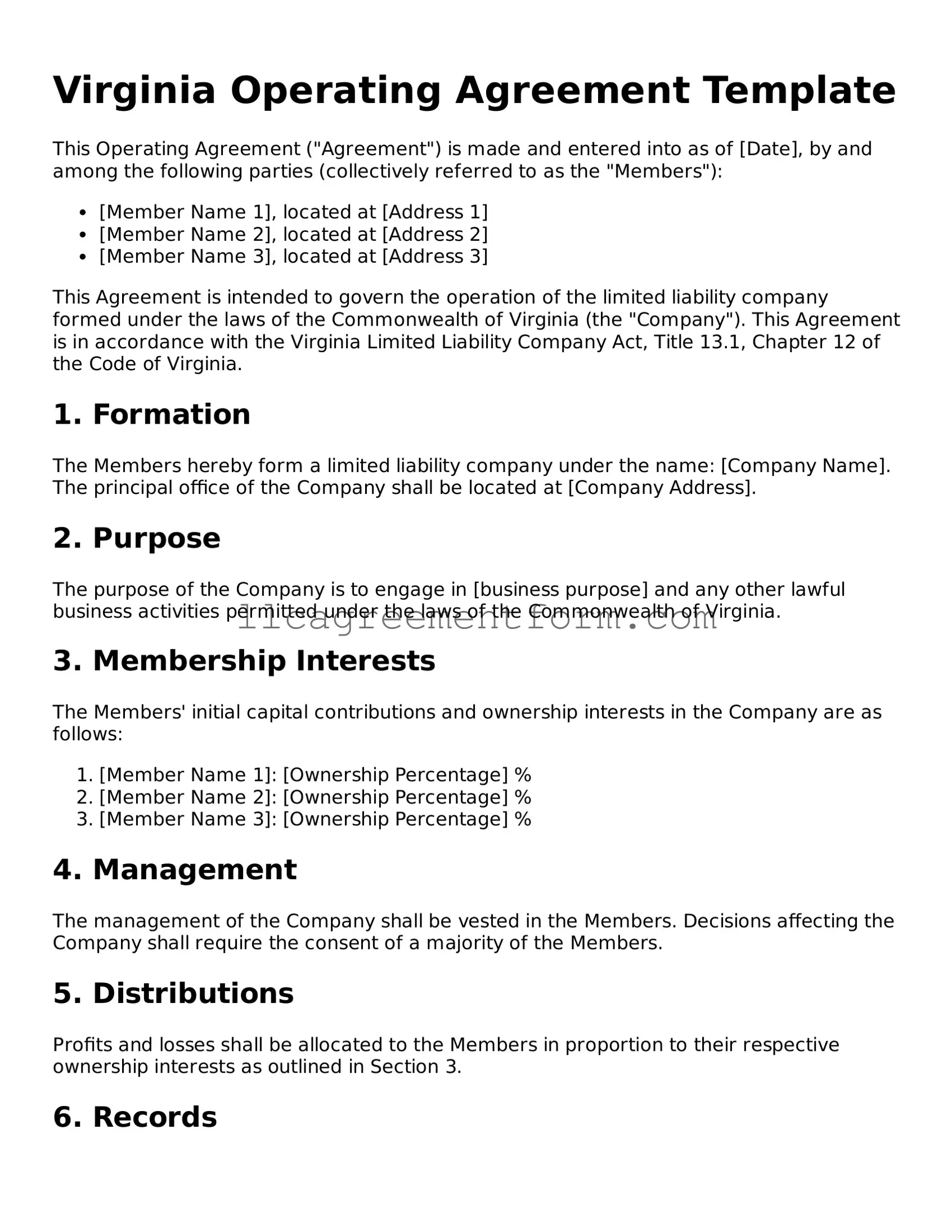Free Operating Agreement Document for Virginia
The Virginia Operating Agreement form is a legal document that outlines the management structure and operating procedures of a limited liability company (LLC) in Virginia. This agreement serves as a foundational blueprint for the business, detailing the rights and responsibilities of its members. To ensure compliance and clarity, it is important to fill out this form accurately.
Get started by filling out the form below.
Get Operating Agreement Now

Free Operating Agreement Document for Virginia
Get Operating Agreement Now
Don’t stop halfway through your form
Finish Operating Agreement online with fast editing and easy download.
Get Operating Agreement Now
or
▼ PDF
